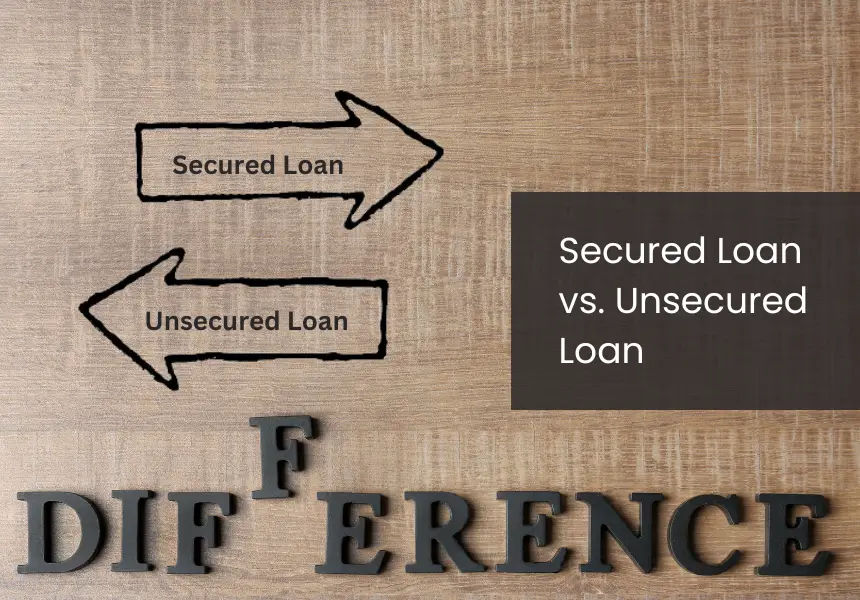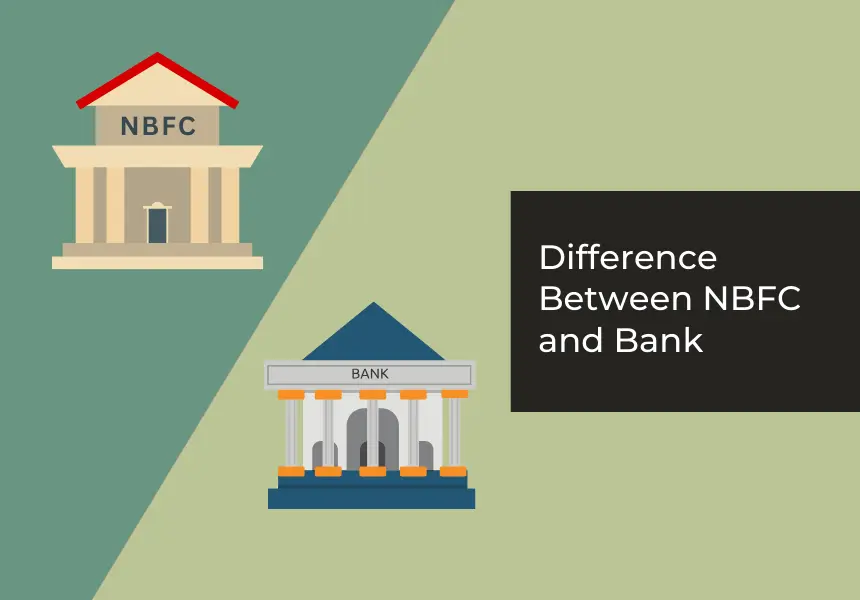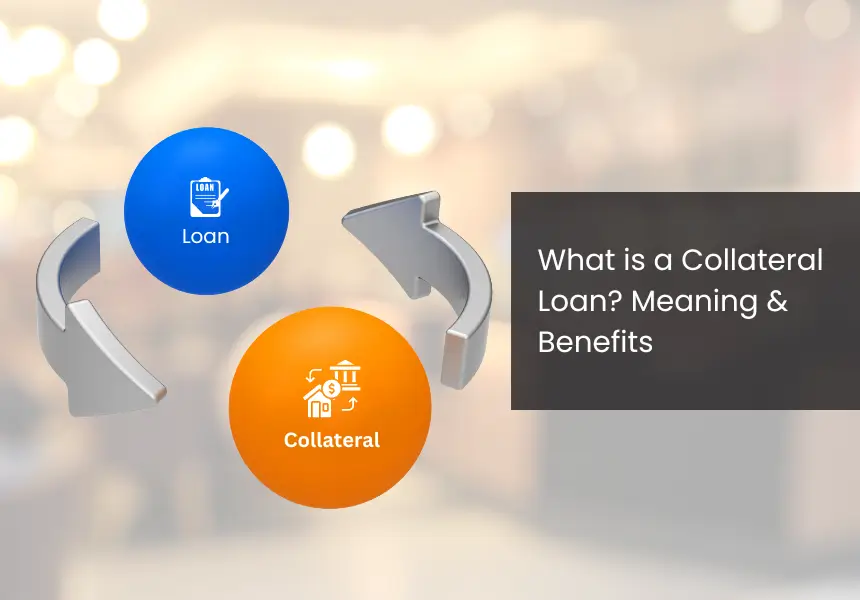
Self-employed individuals wear many hats, from running their businesses and managing clients to handling personal expenses. But what if an unexpected expense arises, or you need extra funds to meet certain requirements? This is where personal loans help, offering a quick and flexible way to handle financial needs without lengthy procedures.
While personal loans are designed to make life easier, self-employed individuals often face unique challenges, like proving income stability or meeting specific eligibility criteria. But securing a personal loan isn’t as complicated as it might seem. With the right preparation and understanding of the process, you can access the finances you need without any stress.
Here, we have listed the benefits of personal loans, how self-employed individuals can apply for them and what factors you must consider before applying.
Benefits of Personal Loans for Self-Employed Individuals
Personal loans are a versatile financial solution for self-employed individuals, offering quick access to funds with minimal hassle. Whether you need to manage unexpected expenses or need money for fulfilling personal requirements, these loans can help you meet your unique needs. Below are some of the benefits of personal loans for self-employed individuals:
1. Access to Funds Without Collateral
Personal loans are unsecured, which means that self-employed individuals can borrow money without pledging assets like property or business equipment. This makes them an attractive option for those who may not want to risk their personal or business resources.
2. Customized Loan Amounts
Depending on your income and creditworthiness, personal loans can provide flexibility in the loan amount. Whether you require a small amount to cover immediate expenses or a larger sum, lenders can meet your requirements with loan limits going up to ₹10 lakh or more, depending on the specific lender.
3. Customizable Repayment Terms
Lenders generally offer repayment terms that align with your financial situation. You can select tenures that extend up to 60 months, balancing affordability and convenience. Your lender may also provide an option for prepayment without hefty penalties, which can help in reducing the interest outflow.
4. Quick Approval and Disbursal
With the availability of personal loans online, they have become easy to apply for and promise quick disbursals. Many lenders provide online application facilities, instant approvals, and disbursal within 24-48 hours, ensuring you can address emergencies without delay.
5. Attractive Interest Rates
Many lenders offer competitive rates to self-employed individuals based on a good credit score and stable financial history. Lower rates can significantly reduce your monthly EMI burden and lower the overall amount you pay, making personal loans cost-effective.
6. Transparency in Charges
Personal loans come with clear and upfront fee structures. Processing charges, prepayment fees, and any additional costs are communicated transparently by reliable lenders, helping borrowers make informed decisions and avoid hidden surprises.
7. Convenience and Accessibility
Since the entire personal loan application process is completed online, you can upload documents, complete KYC, and track your loans without the need to visit the branch, saving valuable time.
Personal loans offer self-employed individuals financial flexibility and ease of access, and help you skip the complexities of collateral or lengthy paperwork, making them the perfect financial solution.
How to Apply for a Personal Loan for Self Employed?
Applying for a personal loan as a self-employed individual is quick and convenient with online processes. Here’s how you can do it:
1. Start with an Online Application
You must visit the lender’s official website or download their mobile application to get started. Then you will be required to fill out the application form by providing essential details such as:
- Personal information
- Income details
- Employment type (self-employed)
- Contact information
Once the form is complete, upload the necessary documents such as bank statements, income proof, and identity verification documents.
2. Complete e-KYC and Verification
To make the process paperless and hassle-free, enter your PAN card details and date of birth for KYC. This step ensures quick identity verification. Carefully review the terms and conditions before submitting your application to avoid any confusion later.
After submission, the lender will verify your information to confirm your eligibility.
3. Approval and Disbursement
Once your application is approved, you will need to e-sign the loan agreement and authorize the repayment mandate via eNACH. Upon completion, the loan amount will be credited to your bank account, usually within 24-36 hours.
Factors to Consider Before Applying for a Personal Loan as a Self Employed
As a self-employed individual, securing a personal loan requires careful planning and evaluation of certain factors. Here are the factors you should consider before applying for a personal loan:
1. Credit Score
Your credit score helps in determining your loan eligibility and interest rates. A score of 700 or above is generally preferred by lenders as it reflects financial discipline and low credit risk. To improve your credit score, ensure timely payment of EMIs, credit card bills, and any other outstanding debts.
2. Proof of Income and Financial Stability
Lenders assess your income stability by reviewing your business profits, tax returns, and bank statements. Consistent income over the past few years can strengthen your loan application. Additionally, maintaining detailed financial records can demonstrate your ability to handle repayments.
3. Repayment Capacity
Lenders check your debt-to-income ratio to evaluate your repayment capacity. Ideally, your debts should not exceed 30% of your monthly income. You must create a realistic repayment plan to ensure you can manage EMIs comfortably without straining your finances.
4. Business Tenure and Stability
The longevity and stability of your business can impact your loan approval chances. Lenders often prefer applicants with established businesses that have been operational for at least 2 years. This shows your reliability and reduces the perceived risk of default.
5. Loan Terms and Conditions
You must thoroughly review the loan terms, including the interest rate, repayment tenure, and additional charges such as processing fees, prepayment penalties, or late payment fines. You must also understand the lender’s foreclosure and prepayment terms. Some lenders may charge fees for prepaying the loan, while others may also have flexibility. You must know these details as they can help you plan your repayment strategy effectively. In essence, you should look for a lender offering favorable terms that align with your financial goals.
6. Purpose of the Loan
You must clearly define why you need a personal loan. Whether it’s for debt consolidation or personal expenses, borrowing only the required amount ensures that you don’t incur unnecessary debt and interest charges.
7. Collateral or Co-Applicant
Some lenders may require collateral or a co-applicant to approve a personal loan for self-employed individuals. Offering collateral or involving a financially stable co-applicant can help increase your chances of approval and get better loan terms.
Conclusion
Securing a personal loan as a self-employed individual in India is now easier than ever. With proper planning, the right documentation, and a good credit score, you can get financial support customized to your unique needs. Whether it’s for addressing unexpected expenses or fulfilling personal aspirations, a personal loan can be the perfect financial solution for you.
To make this process even easier, LoanTap offers customized personal loans designed for self-employed professionals up to ₹10 lakh. With minimal paperwork, flexible repayment options, and a swift approval process, LoanTap ensures that financial hurdles never hold you back.
Frequently Asked Questions
Can self-employed individuals apply for personal loans in India?
Yes, self-employed individuals can apply for personal loans in India, provided they meet the lender’s eligibility criteria.
What documents are required for self-employed personal loans?
While the specific documents may vary between lenders, some common documents include proof of identity, address proof, income tax returns, business proof, and bank statements.
What is the minimum credit score required for self-employed personal loans?
Most lenders prefer a credit score of 700 or above, but this can vary depending on the lender.
Can I use a personal loan for business purposes?
Yes, personal loans can be used for various purposes, including business needs, as they are unsecured and have no end-use restrictions.
Do lenders offer instant personal loans for self-employed individuals?
Yes, many lenders, especially online platforms, offer instant loans with quick approvals for eligible applicants.
How can I improve my chances of getting a personal loan as a self-employed individual?
Maintain a good credit score, provide accurate documentation, and ensure your income and business stability are well-documented.








